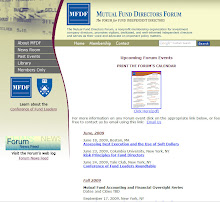According to Schapiro, this "behind the scenes" trading in large blocks of securities raises concerns because it restricts market information in obvious ways and erodes investor confidence:
We have heard concerns from market participants that the lack of post-trade transparency by dark pools makes it difficult, if not impossible, for the public to assess dark pool trading and to identify pools that are most active in particular stocks. This lack of transparency has the potential to undermine public confidence in the equity markets, particularly if the volume of trading activity in dark pools increases substantially. For example, the lack of reliable information can prompt speculation and suspicion about the basis for market fluctuations.Further, because of the nonpublic way participants in dark pools indicate their interest to buy or sell blocks of shares to these dark pools, there is a fear that private markets will develop that exclude the greater investing public. This "secret" process restricts market information and, if dark pool trading volume continues to increase, could harm price discovery in the markets available to the open public.
Dark pools that use these messages typically transmit them to networks of selected market participants. As a result, there is the danger that significant private markets may develop that exclude public investors. These private markets could wind up representing a significant volume of trading based on valuable information on actionable orders to which the public does not have fair access.Although Chairman Schapiro did not reveal what kind of regulation of dark pools, if any, might be on the table, it is notable that the SEC has identified dark pools as an area of potential regulation based on its risk potential.
A further concern about dark pools is that they potentially could impair the public price discovery function if they diverted a significant amount of valuable marketable order flow away from the “lit” markets — the exchanges and ECNs that display quotes in the public quote stream.
The full text of Chairman Schapiro's June 18, 2009 address is available at: http://www.sec.gov/news/speech/2009/spch061809mls-2.htm





